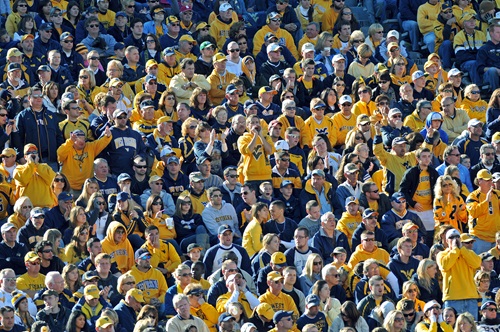
Photo © Anatoly Epaneshnikov | Dreamstime.com
Fan behavior is worse now than it was five years ago, according to security directors at professional sports venues, and their top concerns include active shooter situations, alcohol abuse, weapons and vehicle ramming.
Those are just some of the findings from the “Venue Security Director Survey: 2024 Industry Research Report,” which recently was published by the National Center for Spectator Sports Safety and Security (NCS4) at The University of Southern Mississippi.
The 22-page report features insights from 152 venue security directors at Major League Baseball, Major League Soccer, National Basketball Association, National Football League and National Hockey League stadiums and arenas. More than 50 online questions covered venue demographics, staffing, training and development, facility operations, fan behavior, and technology solutions.
“The purpose of the report is to provide a bird’seye view of safety and security issues, emerging threats, and technology solutions at professional sporting venues and provide recommendations to assist security venue directors in strengthening security efforts in policies and procedures,” Dr. Brandon Allen, NCS4’s director of research and associate professor of sport management, said in a statement.
Other highlights of the survey, which is available here, include:
• Almost three-quarters of venues have experienced staff shortages in the past two years. Top reasons cited for the shortages include no-shows, non-competitive wages and a lack of qualified candidates.
• Approximately 94% of respondents rely on contracted security staff in some capacity on event days.
• The top training requirements for full-time in-house security staff include de-escalation/conflict resolution, incident reporting, venue/event familiarization, operation of security technology and standard operational procedures.
• The top training requirements for contracted security staff include prohibited items, crowd management, venue/event familiarization, fan code of conduct and standard operational procedures.
• More than 60% of venues have obtained or are in the process of obtaining Department of Homeland Security SAFETY Act Certification for the use of anti-terrorism technologies.
• At 60% of venues, the average wait time for patrons at security checkpoints is less than five minutes. Ticket verification takes the most time, followed by bag checks and metal detection screening.
• The most common forms of inappropriate fan behavior are alcohol abuse and fights, followed by abusive language, smoking and throwing objects on the field.
• More than one-quarter of venue security directors have noticed an increase in drug-related incidents at sporting events; nearly 20% of venues report an overdose incident at one of their events, and more than half of those venues offer staff training to identify potential overdoses.
The report also includes a series of industry recommendations that include the following (and could perhaps be beneficial to event owners and operators of smaller venues):
• “Explore security staff recruitment and retention efforts (i.e., player meet/greet, parking proximity, staff recognition, complimentary food and merchandise, employee discounts, professional development opportunities, etc.).”
• “Ensure event staff (full-time and contracted) are trained in basic security, medical response and crowd management strategies (including de-escalation techniques).”
• “Invest in bag screening and ticketing technology to reduce the average wait time for spectators entering the facility.”

• “Analyze hot spots for inappropriate fan behavior within the venue and deploy event security staff and resources accordingly.”
• “Clearly communicate policies such as the fan code of conduct and alcohol policy, ensuring that spectators understand the consequences of violations.”
• “Ensure facilities are prepared for medical emergencies (e.g., heart attacks, drug overdose, heat illness, severe bleeding) with the appropriate response equipment, such as Narcan®, water stations and STOP THE BLEED® kits.”
• “Partner with non-profit organizations to provide overdose awareness and education to spectators.”
Additionally, the report includes a full page of recommended resources.

